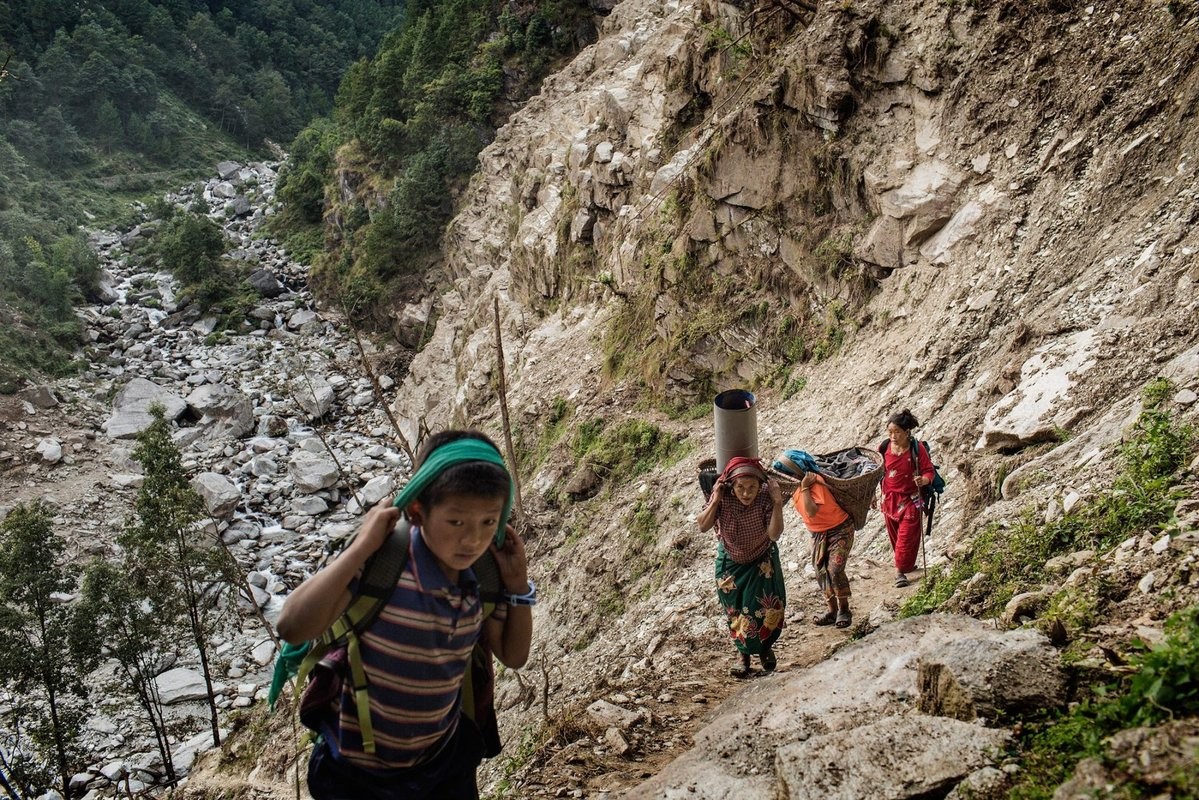Popular Reads
Top Results
Can't find what you're looking for?
View all search resultsPopular Reads
Top Results
Can't find what you're looking for?
View all search resultsNepal tops South Asia in reducing hunger
Nepal has held on to the top position among South Asian countries in the campaign to reduce hunger.
Change text size
Gift Premium Articles
to Anyone
A
ccording to the 2017 Global Hunger Index (GHI) released by the International Food Policy Research Institute (IFPRI) on Thursday, Nepal experienced rapid improvements in reducing hunger and is nearing the ‘moderate’ from the ‘serious’ category, largely due to declines in undernourishment, child stunting and child mortality.
The GHI considers a score above 50 as being extremely alarming, 35-49.9 alarming, 20-34.9 serious, 10-19.9 moderate and below 9.9 low. The report shows that Nepal’s GHI score of 42.5 in 1992 has dropped to 22 in 2017. This implies that hunger levels in Nepal have diminished significantly.
The GHI calculation does not include higher-income countries and countries with small populations. Nepal’s GHI score was in the ‘alarming’ category in 2000.
Nepal has been ranked 72nd out of 119 countries on the GHI. Among South Asian countries, Nepal is ahead of Sri Lanka (84th), Bangladesh (90th), India (97th), Pakistan (107th) and Afghanistan (111th).
The report said that Nepal’s remarkable achievement in reducing child stunting between 2001 and 2011 is associated with, and likely attributable to, increased household assets, increased maternal education levels, improved sanitation levels, and implementation and utilisation of health and nutrition programmes, including antenatal and neonatal care.
Despite Nepal’s progress, there are still deep inequalities within the country, the report said. “As we fight the scourge of hunger across the globe, we must understand how inequality contributes to it.
To ensure that those who are affected by inequality can demand change from national governments and international organisations and hold them to account, we must understand and redress power imbalances.
This is crucial if we are to reach the Sustainable Development Goals by 2030 and end hunger forever,” the report said.
The report combines four hunger-related indicators -- the proportion of undernourished in the population, the prevalence of wasting in children under five years, prevalence of stunting in children under five years and the mortality rate of children.
In Nepal’s context, the report shows 8.1 per cent of the population to be undernourished.
However, Nepal’s child wasting rate has remained unchanged. The share of under-five children who are ‘wasted’ is 11.3 per cent while the share of children who are ‘stunted’ under five years is 37.4 per cent. The under-five mortality rate is 3.6 per cent in Nepal, according to the report.
The data for under-nourishment is from 2014-16, the data for prevalence of wasting and prevalence of stunting in children under five years is from 2012-16 and the under-five mortality rate is from 2015.
The portion of undernourished population has dropped from 12.6 per cent over a span of seven years.
Likewise, prevalence of wasting in children less than five years has dropped from 12.7 per cent and prevalence of stunting in children under five years has come down from 49.3 per cent over a span of six years.
Similarly, the under-five mortality rate, which was 5.1 per cent in 2008, has dropped to 3.6 per cent in 2015, according to the report.
This article appeared on The Kathmandu Post newspaper website, which is a member of Asia News Network and a media partner of The Jakarta Post










